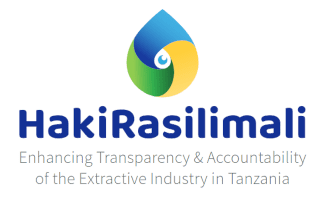Date: October 26–27, 2016
Venue: Blue Pearl Ubungo Plaza Hotel, Dar es Salaam
Overview: Organized by HakiRasilimali in collaboration with partners like HakiMadini and Policy Forum, this two-day conference aimed to broaden information sharing and build awareness on advocacy strategies in the mining, oil, and gas sectors. Key objectives included examining land access practices, transparency initiatives, and the role of corporate social responsibility in local economic development. The conference brought together civil society organizations, faith-based groups, community representatives, and government officials to discuss collaborative approaches for effective resource governance
Overview
This two-day conference, also known as the Tanzania Alternative Extractive Industry Conference (TAEIC), was organized by HakiRasilimali in collaboration with its coalition members, including HakiMadini, Policy Forum, the Interfaith Standing Committee, ONGEA, and Governance Links. It brought together over 200 participants from civil society organizations, faith-based groups, community representatives, government officials, academia, and the private sector to discuss pressing issues in the mining, oil, and gas industries.
Objectives of the Conference
The conference aimed to broaden information sharing, build awareness on advocacy strategies, and strengthen collaboration among stakeholders in the extractive sector. Key objectives included:
- Examining Land Access Practices
- Scrutinizing current land access practices in the extractive industry.
- Understanding their impacts on community rights, livelihoods, and local economic development.
- Promoting Transparency and Accountability
- Assessing transparency initiatives in the sector.
- Identifying challenges in implementing the Extractive Industries Transparency Initiative (EITI) standards.
- Corporate Social Responsibility (CSR)
- Evaluating the role of CSR in supporting local economic growth.
- Encouraging companies to align CSR efforts with community needs.
- Artisanal and Small-Scale Mining (ASM)
- Reviewing policies related to ASM formalization.
- Addressing challenges faced by small-scale miners in accessing markets and resources.
- Collaboration and Alliance Building
- Fostering multi-stakeholder partnerships for effective resource governance.
- Strengthening alliances among civil society, local communities, and ASM stakeholders.
HakiRasilimali’s Role and Contributions
As the primary organizer, HakiRasilimali played a critical role in the following areas:
- Coordinating the Event: Managed logistics, invited speakers, and set the agenda for the two-day conference.
- Moderating Discussions: Facilitated interactive sessions to ensure productive and focused dialogue among participants.
- Advocacy and Policy Influence: Gathered insights from the conference to shape policy recommendations and advocacy strategies for improved extractive sector governance.
- Capacity Building: Provided a platform for grassroots organizations and community leaders to share their experiences and challenges, enhancing their capacity to engage in policy dialogues.
Key Discussions and Outcomes
The conference featured several high-impact discussions, including:
- Industrialization and Extractive Strategies:
- Debated whether Tanzania’s extractive strategies align with its industrialization goals.
- Explored how the sector can contribute to broader economic transformation.
- Community Rights and Livelihoods:
- Examined the social and economic impacts of land acquisition by mining companies.
- Discussed mechanisms for protecting community rights in the face of large-scale extraction.
- Transparency Mechanisms:
- Evaluated the effectiveness of existing transparency and accountability frameworks.
- Identified gaps in data disclosure and the need for stronger monitoring mechanisms.
- CSR and Local Development:
- Assessed the impact of CSR initiatives on local economic development.
- Recommended aligning CSR efforts with the long-term needs of host communities.
- ASM Formalization:
- Discussed challenges facing small-scale miners, including regulatory barriers and lack of financial support.
- Proposed measures to integrate ASM into the formal economy.
Outcomes and Recommendations
The conference concluded with a series of actionable recommendations aimed at:
- Enhancing transparency and accountability in the extractive sector.
- Promoting inclusive decision-making processes involving local communities.
- Strengthening the role of civil society in resource governance.
- Building the capacity of small-scale miners to compete in regional and global markets.
Through this conference, HakiRasilimali reinforced its commitment to fostering dialogue, promoting transparency, and supporting sustainable resource management in Tanzania’s extractive industries.






